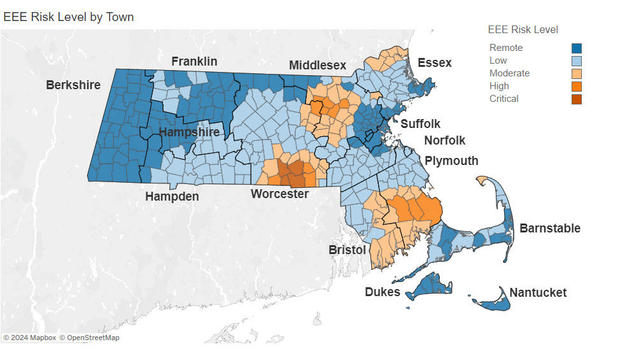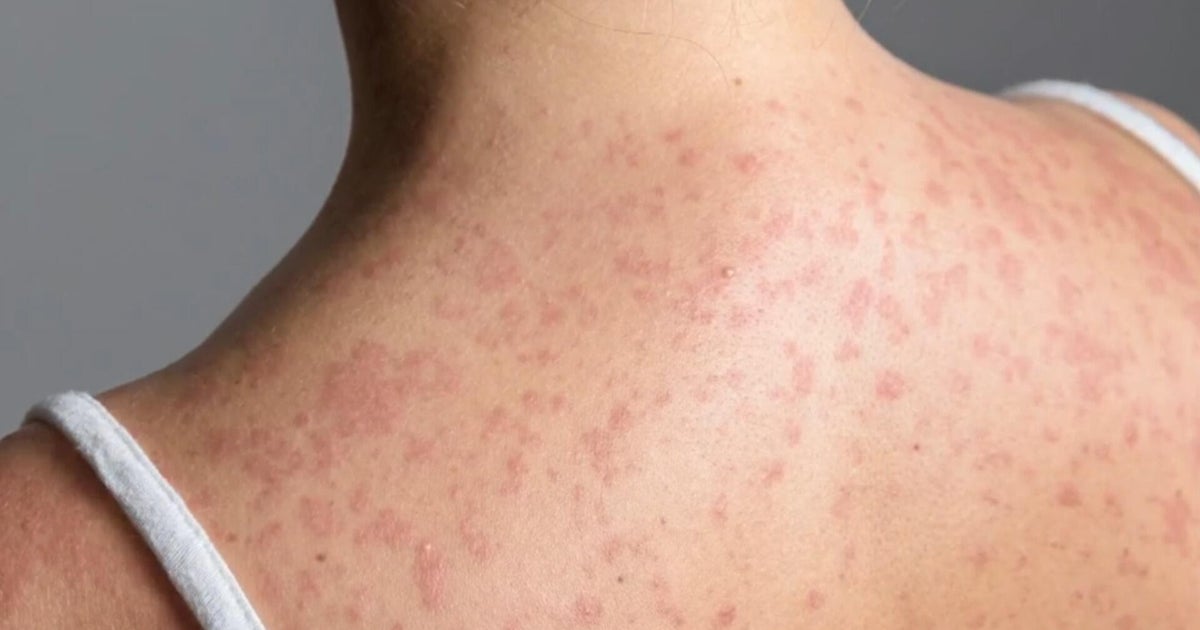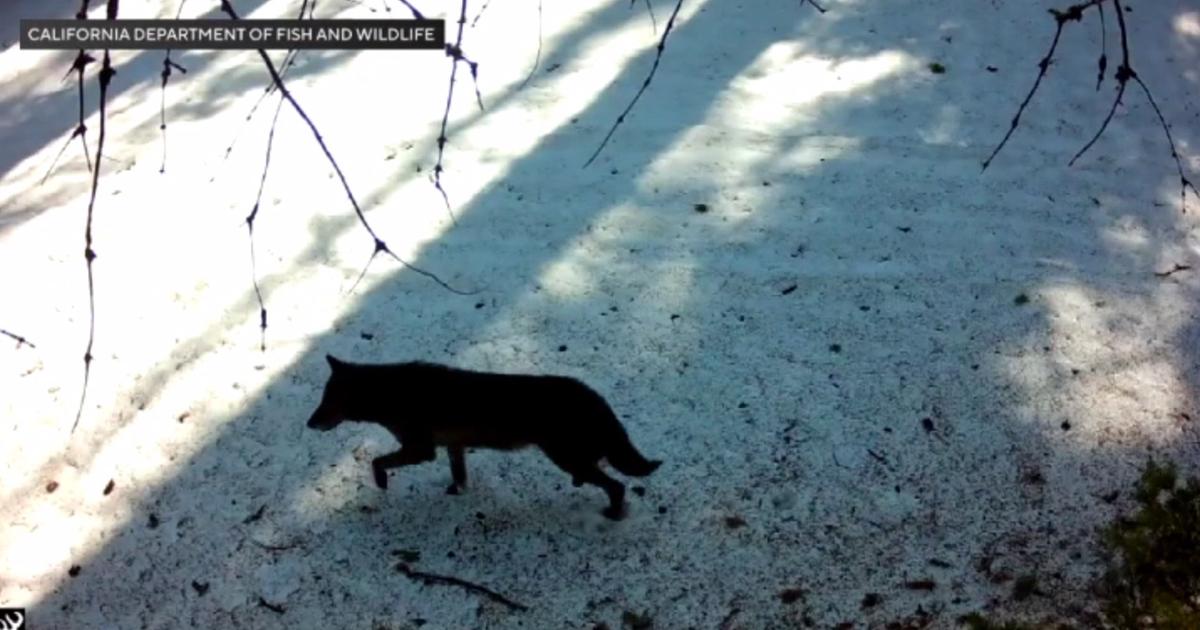Map shows where EEE risk is highest in Massachusetts from infected mosquitoes
CONCORD - The town of Concord, Massachusetts sprayed a playground and field Thursday night after the potentially deadly eastern equine encephalitis, or EEE virus, was confirmed in mosquito samples.
Concord is one of dozens of Massachusetts communities that are reported to be at a moderate, high or critical risk level for the mosquito-borne disease. A map last updated Thursday by the Department of Public Health shows the EEE threat level in each community.
EEE cases in Massachusetts
There have been four confirmed human cases of EEE in Massachusetts this summer. Two have been in Middlesex County, one was in southern Worcester County, and the fourth was in Plymouth County.
A 41-year-old man from Hampstead, New Hampshire, just over the Massachusetts border, died from EEE last month.
According to DPH data, 95 mosquito samples have tested positive for EEE across the state in 2024.
EEE risk level for Massachusetts towns
Below are the communities at a critical, high or moderate risk level for EEE. Critical means there is "excessive" risk for EEE because someone has contracted the virus in the area, high means a human case of EEE is likely to occur in the area, and moderate indicates there could be EEE mosquitoes in the area now.
Critical: Douglas, Oxford, Sutton, Webster
High: Acton, Ayer, Boxboro, Carlisle, Carver, Dudley, Harvard, Littleton, Middleboro, Northbridge, Plymouth, Uxbridge
Moderate: Acushnet, Amesbury, Auburn, Bedford, Berkley, Berlin, Billerica, Bolton, Bridgewater, Charlton, Chelmsford, Clinton, Concord, Dartmouth, Fairhaven, Framingham, Freetown, Grafton, Groton, Groveland, Halifax, Haverhill, Hopedale, Hudson, Lakeville, Lancaster, Leicester, Lincoln, Kingston, Marlboro, Marion, Mattapoisett, Maynard, Mendon, Merrimac, Milford, Millbury, Millville, New Bedford, Newburyport, North Reading, Plympton, Provincetown, Raynham, Rochester, Salisbury, Shirley, Southbridge, Stow, Sudbury, Taunton, Tyngsboro, Upton, Wareham, Wayland, Westford, Westport, West Newbury.
What is EEE and what are the symptoms?
EEE is an "exceedingly rare" virus that normally spreads in swamps, including red maple and white cedar swamps in Massachusetts. "Equine" is in the official name because experts believe horses might be a host animal for the virus.
Most people who get infected don't develop symptoms, but the most recognizable are fever or brain swelling. Other symptoms include headache, vomiting, diarrhea, seizures, behavioral changes and drowsiness.
The CDC says about 30% of people with EEE die because it is untreatable, and many survivors end up with neurologic problems.
To protect against EEE, experts recommend avoiding mosquitoes by using insect repellent, wearing long sleeves and pants, staying inside at dusk and dawn and draining any standing water.








